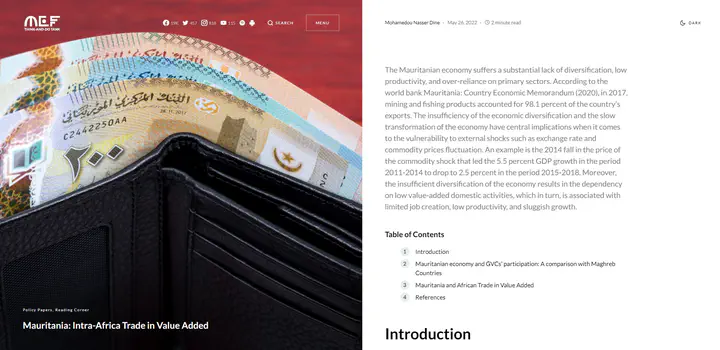Mauritania: Intra-Africa Trade in Value Added

In nutshel
The Mauritanian economy suffers a substantial lack of diversification, low productivity, and over-reliance on primary sectors. According to the world bank Mauritania: Country Economic Memorandum (2020), in 2017, mining and fishing products accounted for 98.1 percent of the country’s exports. The insufficiency of the economic diversification and the slow transformation of the economy have central implications when it comes to the vulnerability to external shocks such as exchange rate and commodity prices fluctuation. An example is the 2014 fall in the price of the commodity shock that led the 5.5 percent GDP growth in the period 2011-2014 to drop to 2.5 percent in the period 2015-2018. Moreover, the insufficient diversification of the economy results in the dependency on low value-added domestic activities, which in turn, is associated with limited job creation, low productivity, and sluggish growth.